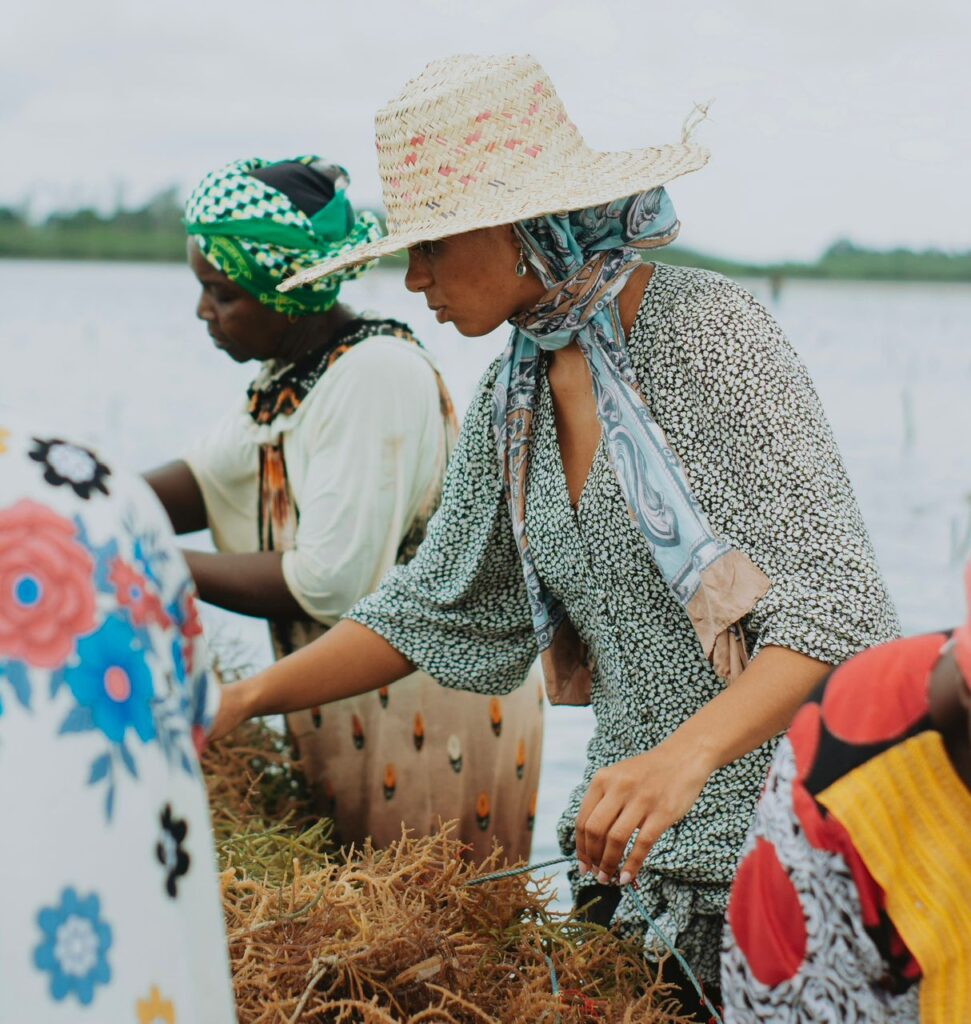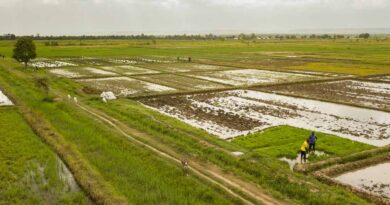Homegrown Climate Solutions in Tanzania Hampered by Finance Barriers
In the tide-worn fishing villages of Zanzibar, where seaweed farming is both livelihood and legacy, an emerging start-up is taking the tradition to new frontiers. Coastal Biotech, a Tanzanian enterprise, is combining marine science with climate resilience to safeguard farmers’ futures. Its mission: to transform local seaweed into natural fertilisers and compostable materials that restore soils, replace chemical inputs, and help crops thrive in challenging conditions.
Beyond agriculture, the company is pioneering alternative biomaterials from seaweed polymers, offering industries mired in plastic dependency a cleaner path forward. “We saw first-hand how degraded soils and unpredictable rainfall were hurting farmers’ productivity,” explains Steven Sillah, Director of Business at Coastal Biotech. “When our bio-stimulants improved crop resilience, we realised we weren’t just making a biotech product – we were building a climate adaptation tool.”
Tanzania is acutely vulnerable to climate shocks. Agriculture contributes 24% of its GDP and employs 66% of its workforce, leaving the nation highly exposed to droughts, floods and erratic weather patterns. A 2024 FSD Africa report ranks Tanzania the 45th most climate-vulnerable country worldwide, while the IMF (2023) placed it 58th in terms of preparedness for adaptation investment.
It is this urgency that underpins the work of Climate KIC’s Adaptation Innovation Cluster, which selected Coastal Biotech as one of its first cohort winners. The initiative, developed with partners such as SmartLab and supported by Irish Aid, accelerates locally designed solutions to strengthen resilience in rural communities.
The World Bank defines the blue economy as “the sustainable use of ocean resources for economic growth, improved livelihoods, and jobs while preserving the health of ocean ecosystems”. With the OECD estimating the sector could reach US$3.2 trillion by 2030, the potential is vast. Yet significant financing gaps remain.
Despite promising field trials, Coastal Biotech faces the same barrier confronting many African climate start-ups: access to finance. “We bootstrapped initial R&D and pilots through personal funds and small grants,” Sillah notes. “Now, as we look to scale, we need blended capital – grants for R&D and risk mitigation, alongside equity or revenue-based finance for commercialisation.”
Investment patterns exacerbate the challenge. Larry Ayo, Innovation Strategist at SmartLab, observes: “Adaptation is often community-based and context-specific, making it harder to scale uniformly or deliver predictable returns. Unlike mitigation technologies, which benefit from carbon markets, adaptation remains sidelined. But interest is slowly shifting, with impact investors looking for resilience metrics and co-benefits.”
This gap, experts argue, is not just financial but systemic. Adaptation’s benefits – resilience, equity, and risk reduction – rarely fit neatly into traditional investment frameworks. Without new language, metrics and financial structures, solutions like Coastal Biotech risk being eclipsed by imported technologies that fail to meet local needs.
While Tanzania’s government has made efforts to improve the business climate, challenges remain. Entrepreneurs cite bureaucratic hurdles, pre-revenue taxation, restrictive lending and high transaction costs as barriers to growth. Early-stage ventures in particular struggle to access risk-tolerant capital, leaving the innovation ecosystem fragile compared to neighbours such as Kenya, Nigeria and South Africa.
For Coastal Biotech, these barriers hinder scaling. “We have ingenuity, untapped coastal resources and real community demand,” says Sillah. “But funding alone isn’t enough. We need technical assistance, support with certifications, and access to markets that recognise climate impact.”
Experts argue that establishing a dedicated climate innovation fund – combining public and private capital with regulatory support – could unlock enormous potential. As Coastal Biotech’s work demonstrates, adaptation is not just about survival; it is about dignity, livelihoods and building a sustainable future.
“Every time a farmer tells us our product helped them survive a drought or earn more income, we know we’re on the right track,” Sillah reflects. “Yes, we’re building a company, but we’re also building resilience for our communities.”
As Tanzania grapples with the realities of climate change, backing homegrown start-ups may prove to be one of the most powerful investments of all – not only in innovation, but in resilience where it matters most.



